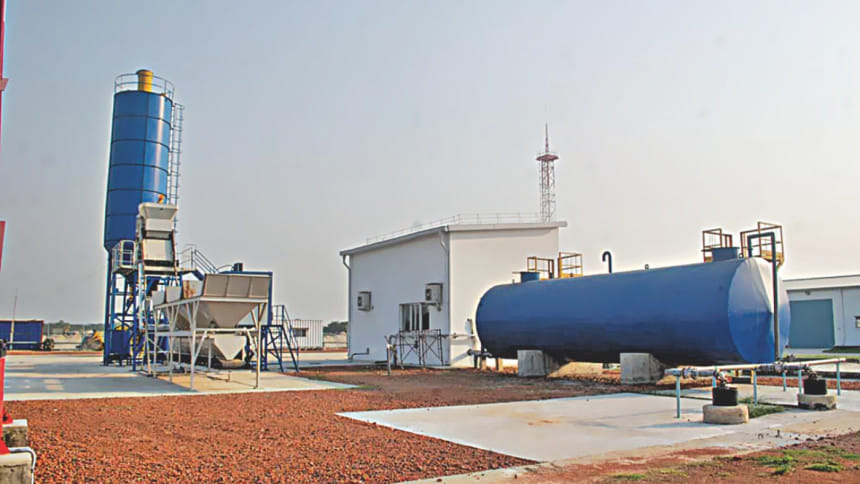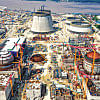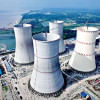Bangladesh, India, Russia ink MoU for Rooppur plant implementation

Bangladesh, India and Russia have signed a Memorandum of Understanding (MoU) on cooperation for implementation of the Rooppur nuclear power plant in Bangladesh.
The MoU was signed in Moscow among Russian State Atomic Energy Corporation (Rosatom), the Ministry of Science and Technology of Bangladesh and the Department of Atomic Energy of the India, reports our New Delhi correspondent.
Bangladesh's Ambassador to Russia SM Saiful Hoque, India's Ambassador to Russia Pankaj Saran and Deputy Director General for international relations of Rosatom Nikolay Spassky signed the MoU, a statement put on the website of Rosatom said.
Read more: All you need to know about Rooppur Nuclear Power Programme
Under the MoU, Indian companies can be involved in construction and installation works, the supply of materials and equipment of a non-critical category in the interests of the project, the statement said.
This is the first instance of a third country (India) being involved in the construction of the nuclear power plant for which the first agreement for Rooppur project was signed by Bangladesh and Russia in November 2011.
In June, 2015, Indian Prime Minister Narendra Modi visited Bangladesh and signed an agreement with the country for cooperation in civil nuclear service.
Significantly, India is not a member of the Nuclear Suppliers Group (NSG), which controls global nuclear commerce, and hence cannot participate directly in construction of atomic power reactors. India is also not a signatory to the Nuclear Non-Proliferation Treaty which New Delhi considers as "discriminatory."
The first unit of the Rooppur NPP is planned to be commissioned in 2023 and the power unit No. 2 in 2024.
The Memorandum of Understanding set a framework for the interaction of the Russian contractor, Indian and Bangladeshi experts in the implementation of works related to the project, Rosatom said.
"The parties, in particular, will cooperate in the field of personnel training, exchange of experience and consulting support," the statement said adding "Indian companies can be involved in construction and installation works, the supply of materials and equipment of a non-critical category in the interests of the project."
Spassky described the MoU as a "landmark" event for the nuclear industry as a whole.
"We are confident that this is the first step toward the formation of a new, forward-looking cooperation agenda in the (South Asian) region," he said.
Spassky said Rosatom is a global company and a world leader in peaceful uses of nuclear energy and added, "We are open to cooperation in the framework of our projects. The signing of the Memorandum is another illustration of our approach."
Russia is building the Rooppur nuclear power plant on a "turnkey" basis. The general construction contractor is JSC Atomstroyexport (part of the Engineering Division of ROSATOM). The scope of work includes design, production and supply of equipment, construction, installation, start-up and commissioning, the statement said.
Construction of the Rooppur nuclear power plant will consist of two power units with Russian-designed WWER reactors with a capacity of 1,200 MW each.
The units constructed as per this project are related to the nuclear units of the "3+" generation with improved technical and economic indicators and the most modern reliability and safety requirements. The power unit No. 1 of the Russian Novovoronezh NPP-2 became the reference for the Rooppur NPP.
In 2015-2016, the General Contractor carried out the preliminary work on the construction site, prepared operating documentation, worked out the documents to justify licenses for sitting and constructing the power units.
On November 30 last year, the ceremony of pouring the "first concrete" into the foundation of the reactor compartment of the first power unit took place.

 For all latest news, follow The Daily Star's Google News channel.
For all latest news, follow The Daily Star's Google News channel. 






Comments